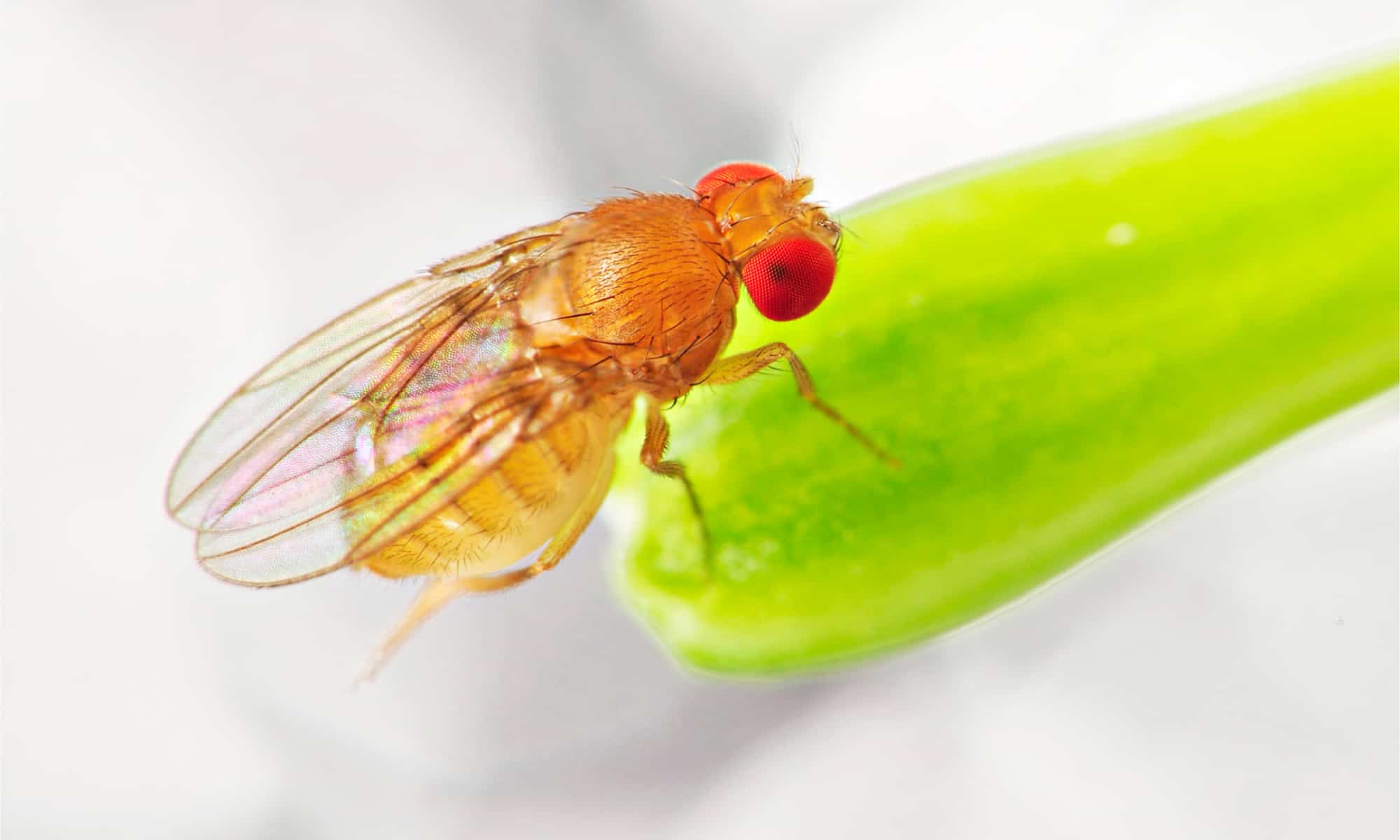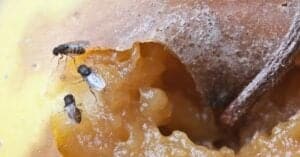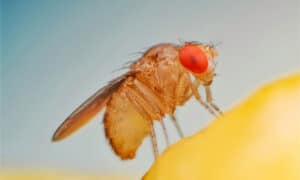Fruit flies are some of the most annoying pests you can find. they’re always flying around where there is food that you’ve left out somewhere. These little flying pests can be a nuisance. you probably thought to yourself, how do I get rid of these things? There are various ways that you can do this by using chemicals. But if you have children or pets in the house, it may not be a good idea to do that. Those chemicals can be harmful to those you care about and love. The good thing is that there are natural and effective ways to get rid of fruit flies. Let’s take a look at the 13 natural and effective ways to get rid of fruit flies.
13. Old Beer or Wine Bottle

Fruit flies have red eyes.
©ValentynVolkov/iStock via Getty Images
Just like fruit flies love vinegar or rotting fruit, they also like wine or beer that has been left out for a while. If you want to get rid of them, one of the best ways to do so is to have an open old beer can or an old wine bottle sitting there. The fruit fly will come to inspect the can or bottle and will become trapped in there.
12. No Damp Towels
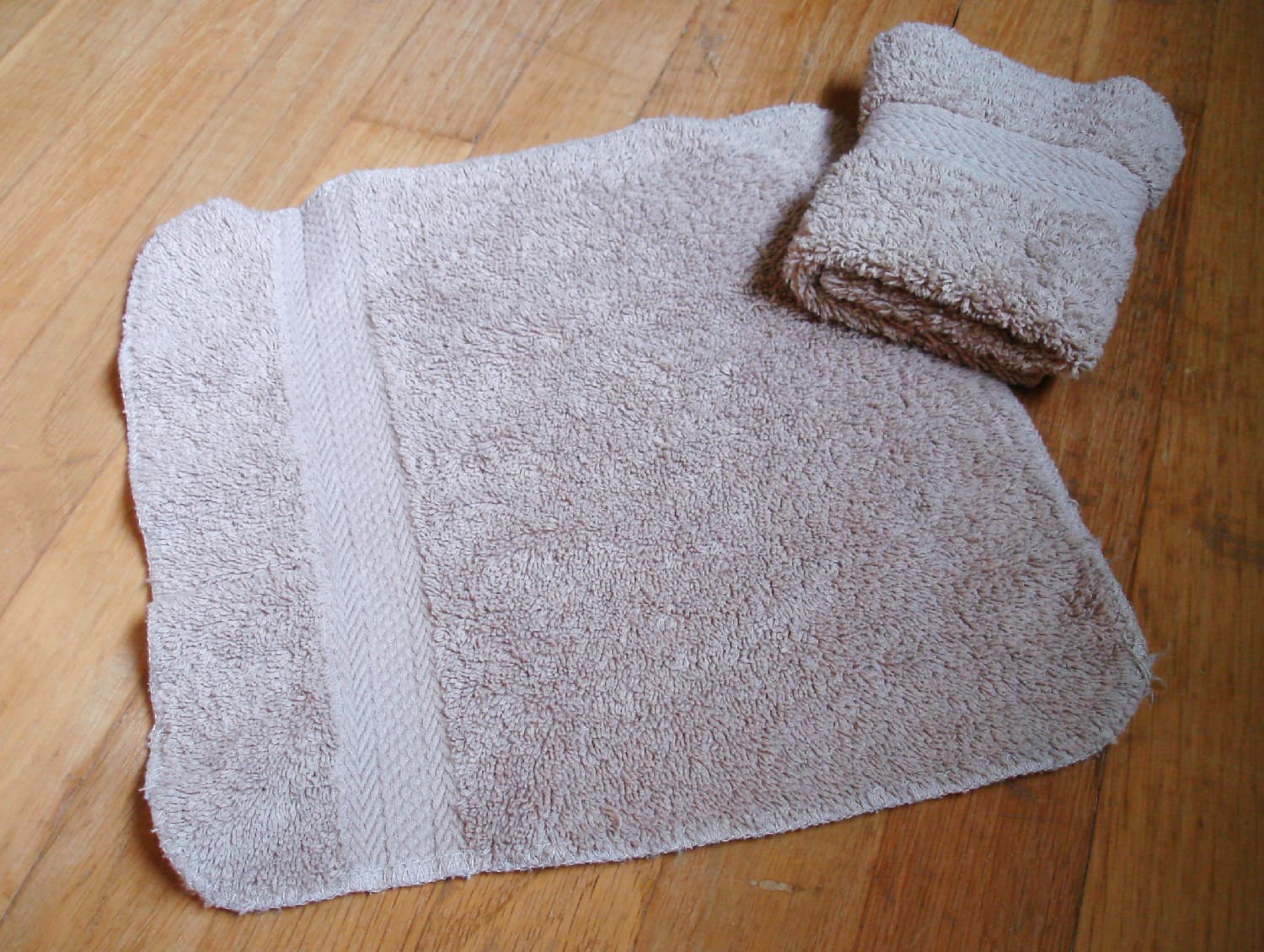
The population of fruit flies skyrockets in summer.
Whenever you wash dishes, you always use a towel to dry them. Damp towels can attract fruit flies. and so, it’s always best to ensure that the damn towels dry or that you use another towel and put the damp one in the hamper.
11. Carnivorous Plant
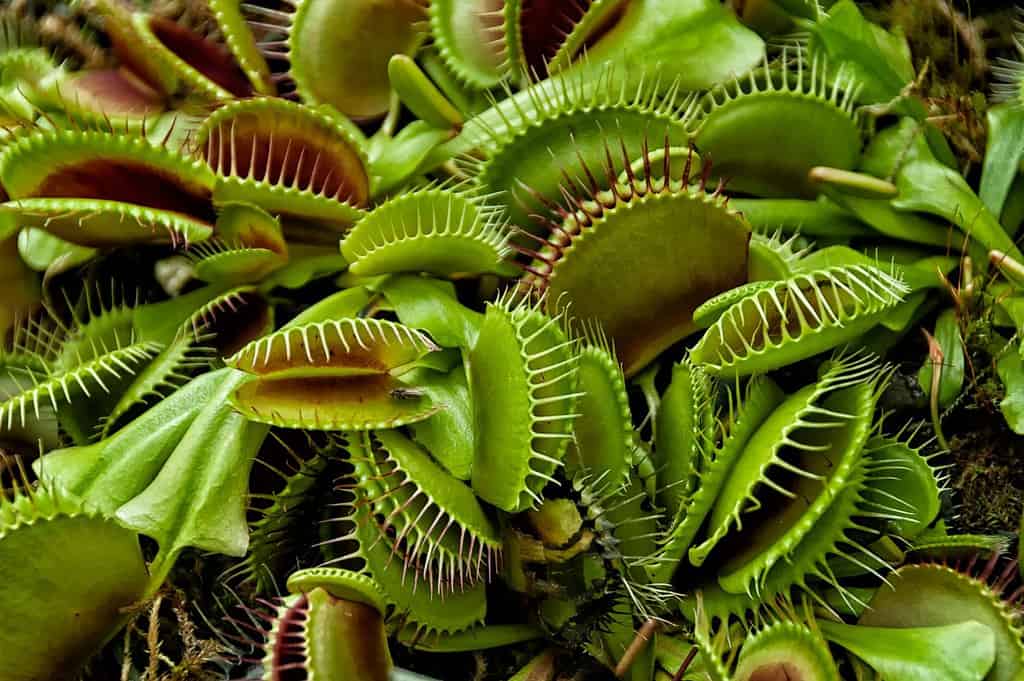
Some common nicknames of fruit flies include vinegar flies and banana flies.
©Barbara Ash/Shutterstock.com
This is one of the natural and effective ways that it is something that most people are not inclined to buy. When you decide to buy a carnivorous plant, fruit flies will be on the menu all the time. The great thing is that carnivorous plants are not going to set you back financially, as the most affordable ones cost about $25.
10. Put Away Ripe Fruit
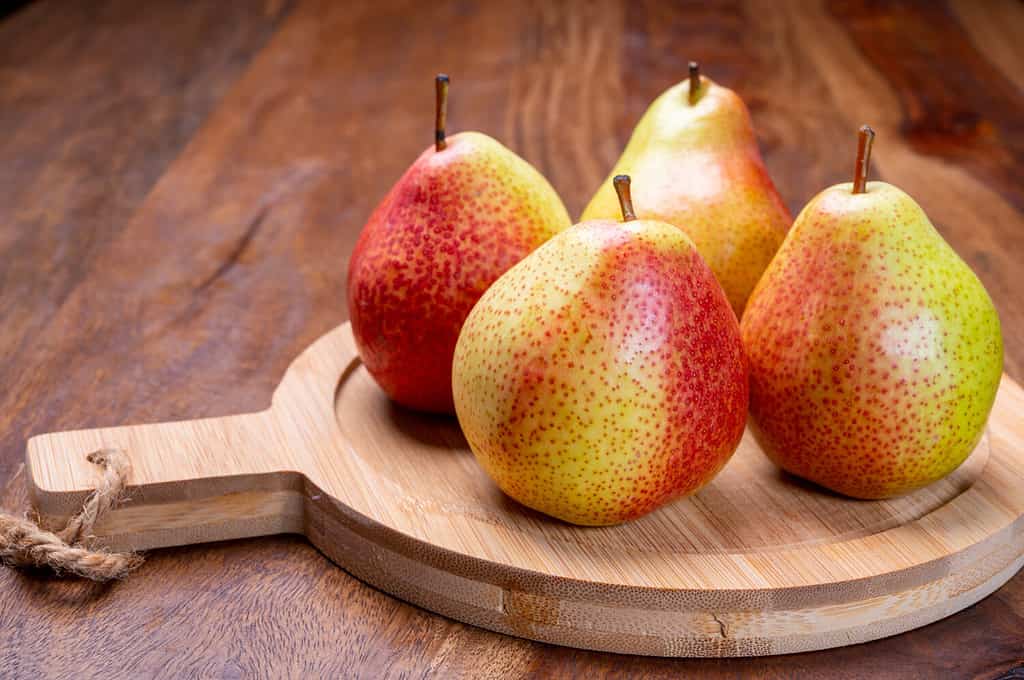
Fruit flies can travel long distances.
©barmalini/Shutterstock.com
Whenever you buy fruit, eventually it will get ripe as it sits in a bowl on your kitchen counter. This is the prime opportunity for fruit flies to get in and start feeding on the microorganisms that are on the fruit. The best way to ensure that fruit flies are not anywhere around is to put away the ripe fruit in the refrigerator.
9. Always Wash Dishes
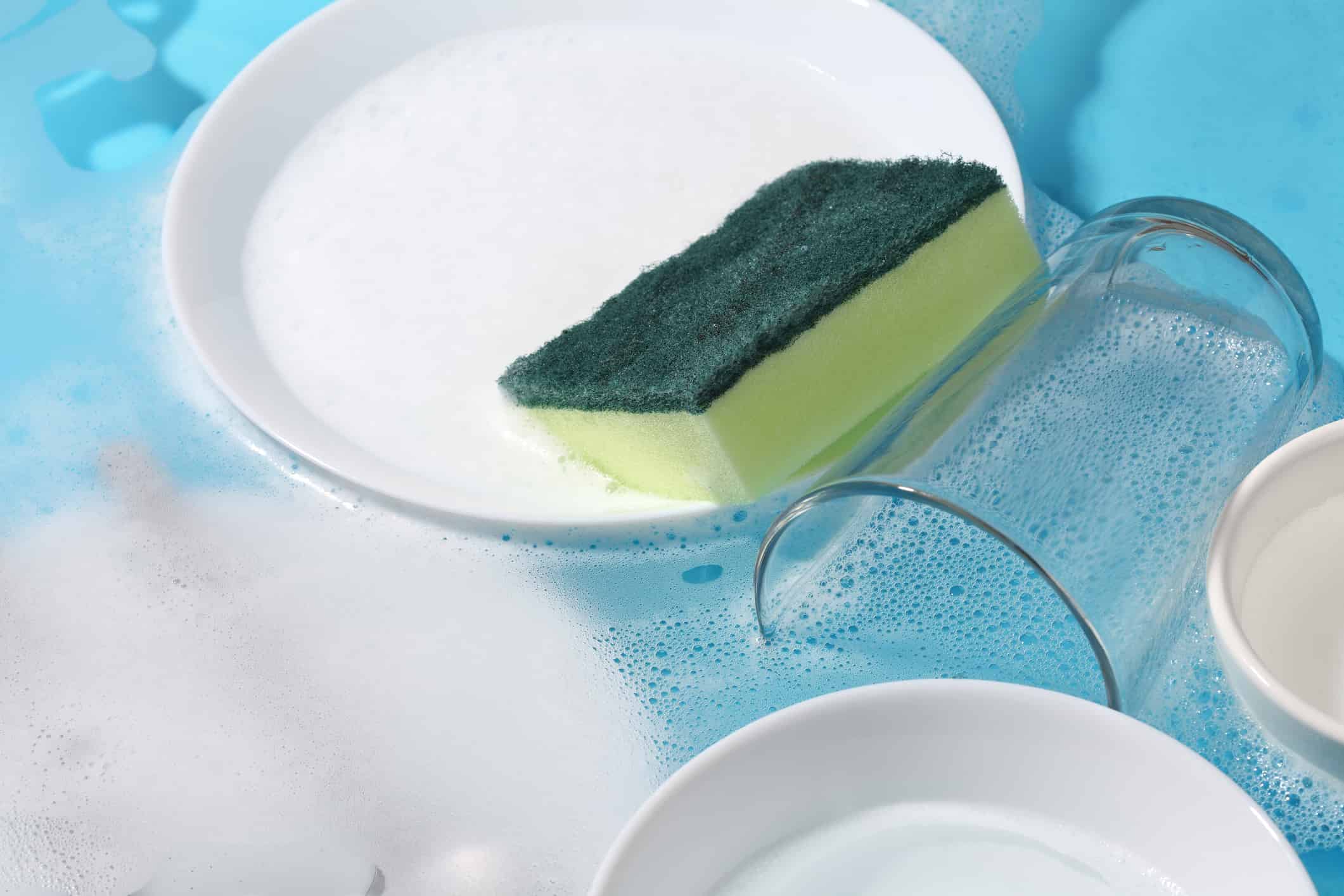
Fruit flies usually eat the microorganisms in fruits.
©seksanwangjaisuk/iStock via Getty Images
Whenever you don’t wash dishes, there’s food that’s left over on those plates or pots and pans. That leftover food attracts fruit flies. And so it is unequivocal advice to always wash dishes instead of leaving them in the sink.
8. Essential Oils
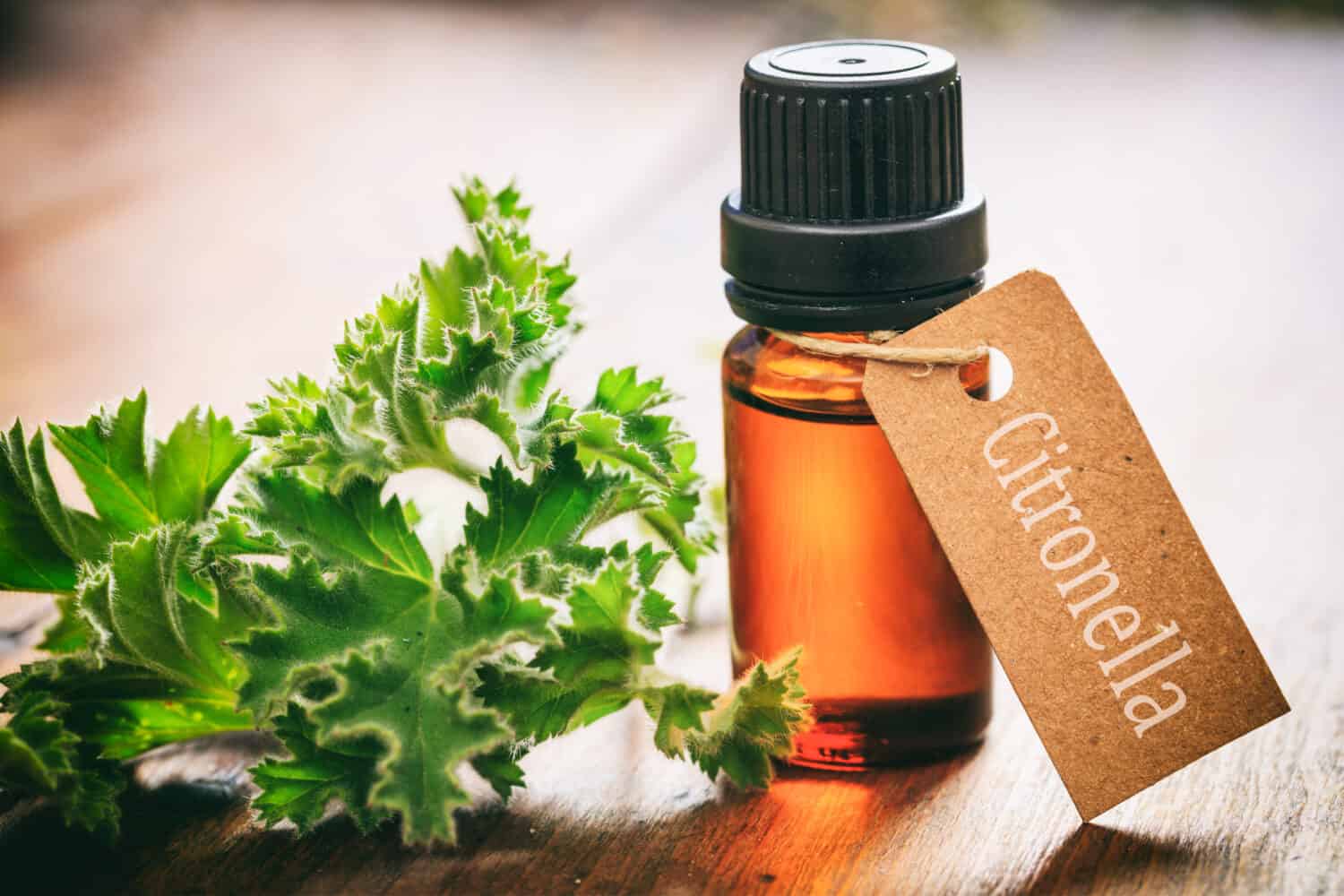
A fruit fly’s lifespan is around 50 days.
©rawf8/Shutterstock.com
Insects do not like strong smells like those in essential oils. It is a sure way to get rid of fruit flies, but also ants, and other insects, as well. Just buy a lavender oil or another type of oil and set it near the kitchen. You will have no fruit flies in a jiffy.
7. Always Wash New Produce
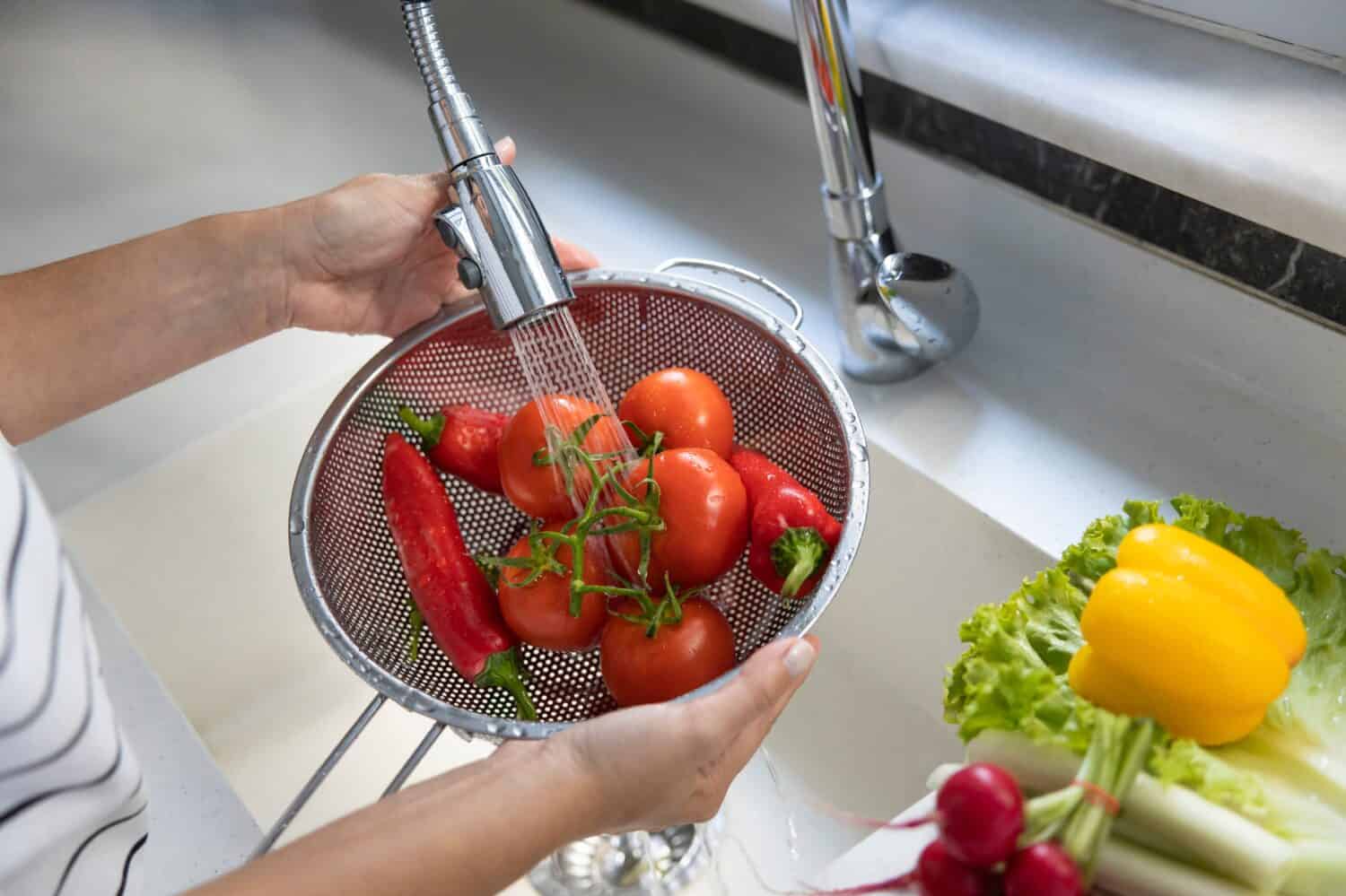
Fruit flies will lay about 500 eggs throughout their lives.
©Ahmet Misirligul/Shutterstock.com
We all know that fruit flies love to gather around fruits, especially if they are either damaged or rotten. It’s always smart to wash the new produce that you buy because, you may notice upon inspection, that the new produce could be potentially damaged or some parts rotten. In that case, it’s always best to cut away the parts that may not be good for consumption.
6. Clean Kitchen Areas

Fruit flies are common in areas with lots of food — like homes or restaurants.
©richwai777/iStock via Getty Images
It’s always smart to clean kitchen areas because fruit flies like to gather where there are leftover fruits or vegetables. For example, if you leave food in the sink, they may gather there to breed. Once they breed, that means that there will be a lot more fruit flies invading your home.
5. Always Check Produce

Fruit flies grow up to 1/8 inch.
©Bogdan Sonjachnyj/Shutterstock.com
Whenever you buy produce, you always check to see if it might be rotten. but have you ever checked the produce inside your refrigerator? If a potato or some other fruit is rotten or damaged, fruit flies can get in there and deposit their eggs, which can lead to problems afterward.
4. Camphor

Fruit flies are not harmful to humans.
©efoArt/Shutterstock.com
Camphor is a powder that comes from the bark of a camper tree. If you buy camphor, the strong smell of it will deter fruit flies and effectively keep them at bay.
3. Banana Trap
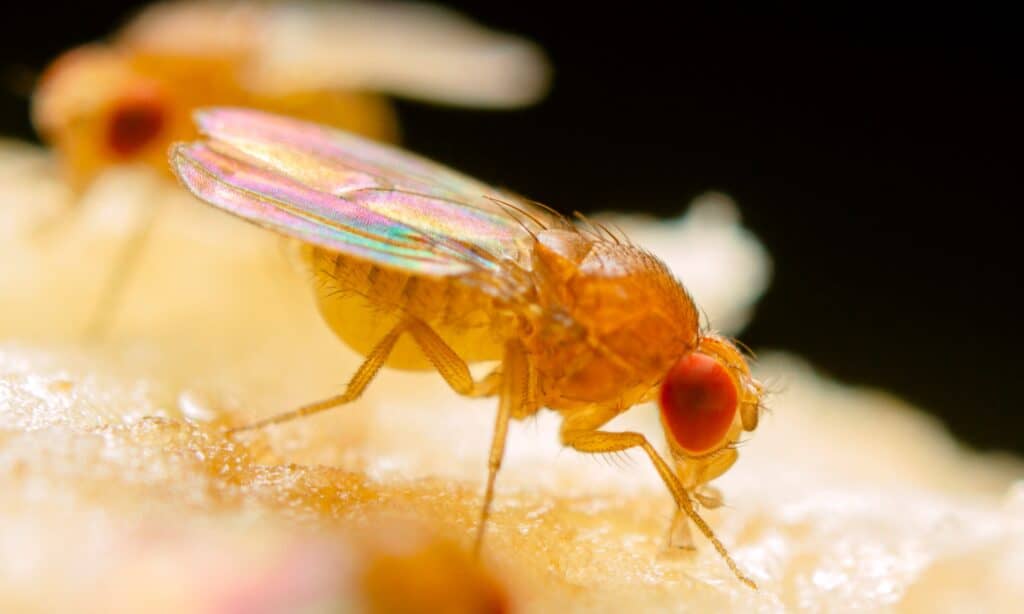
Fruit flies are usually a brown or tan color.
©iStock.com/Whitepointer
Another great idea is having a banana trap. As with all-natural ways to get rid of insects, there may be problems like you may not get them all. Going the chemical route is extremely effective, but is also harmful to people living in the house. When it comes to the banana trap, put a banana on a plate, wrap it in plastic, and poke holes into it. fruit flies will go into the holes and get trapped in there.
2. Soap Cup
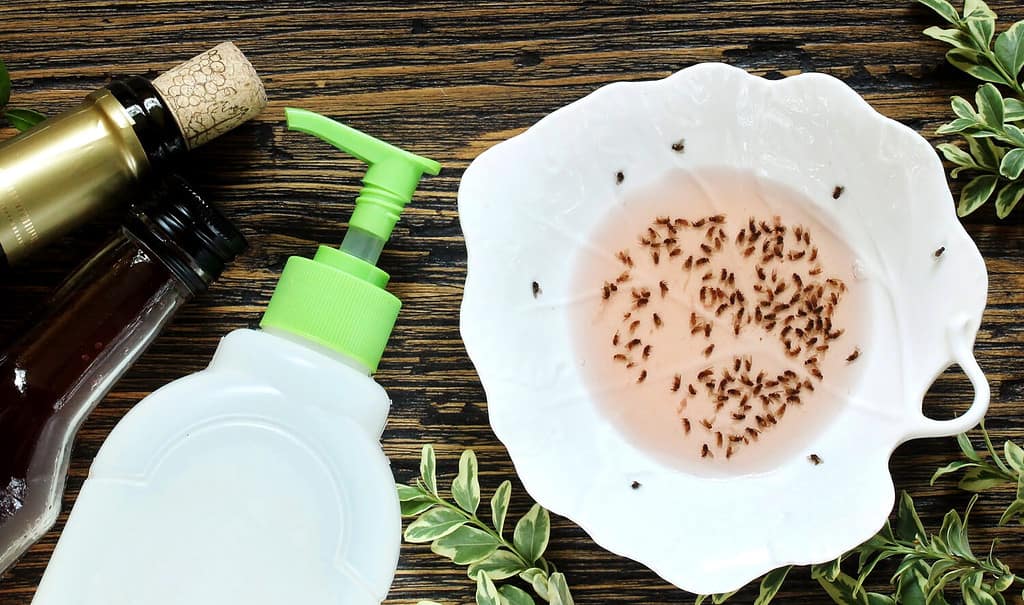
Fruit flies are not harmful to pets.
©Lyudmila Mikhailovskaya/Shutterstock.com
If you put a cup with dish soap and mix it in with vinegar, fruit flies will come flying because of the vinegar. The soap traps them in the mixture, effectively drowning them.
1. Vinegar Bowl

There are many effective ways to get rid of fruit flies.
©focal point/Shutterstock.com
If you mix a bowl with vinegar and water, fruit flies will rapidly fly because of the attraction to vinegar. Make sure you cover the bowl with a plastic wrap and poke holes. They will then get trapped in the vinegar bowl.
Thank you for reading! Have some feedback for us? Contact the AZ Animals editorial team.

